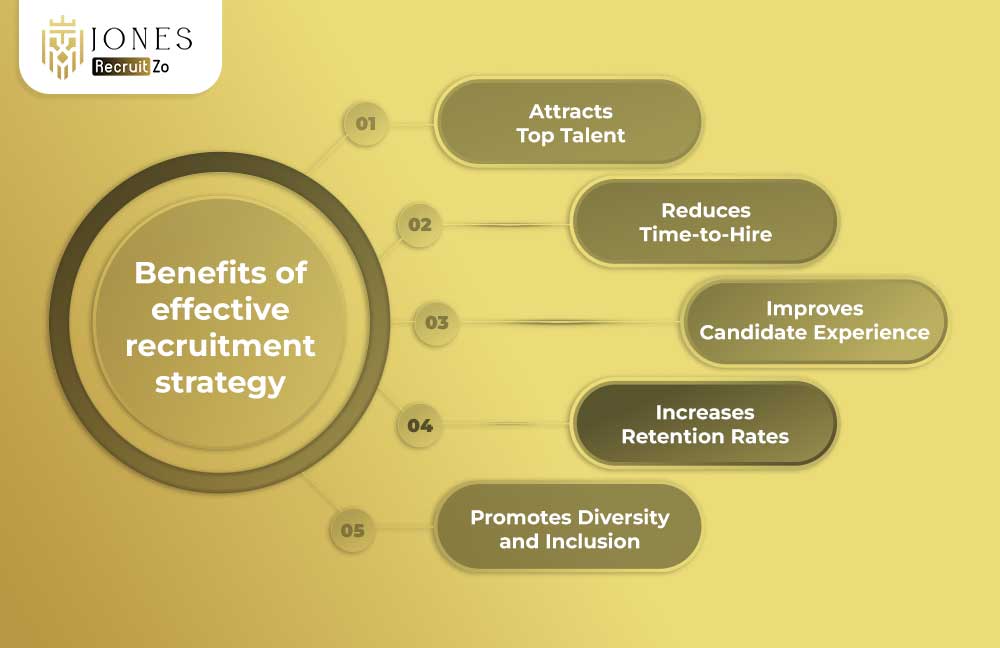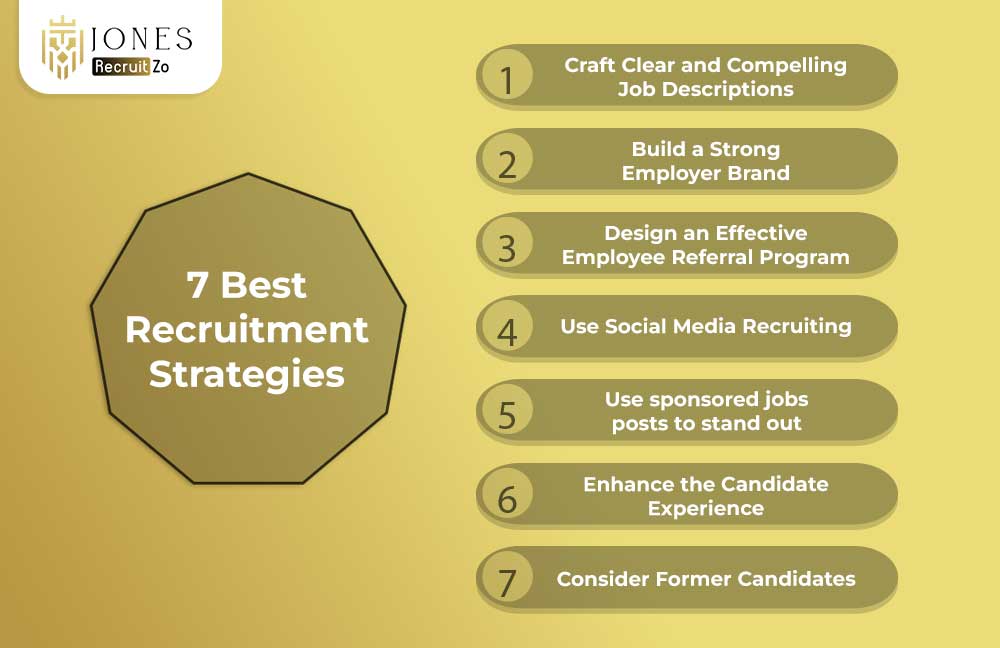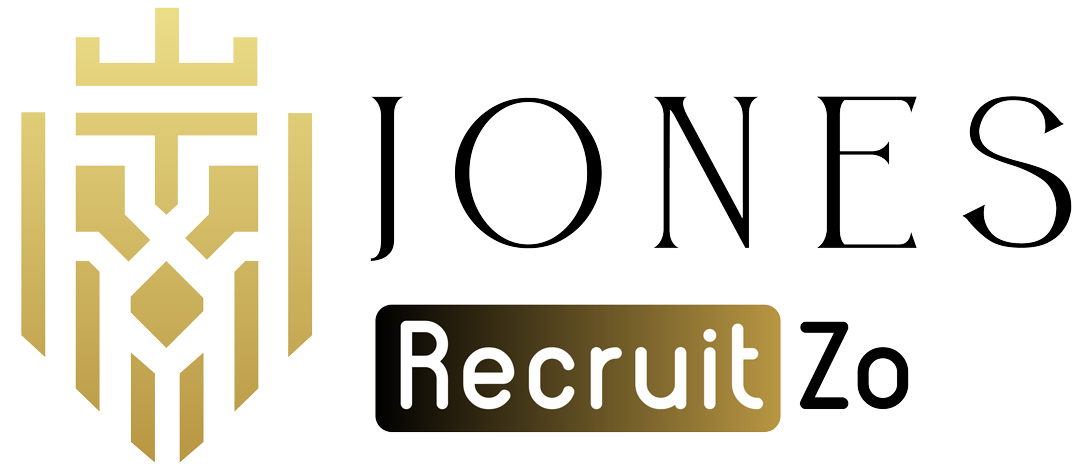What is a Recruitment Strategy?
A recruitment strategy is a structured approach used by organisations to identify, attract, and hire the best candidates for their open roles. It involves creating a plan for recruitment that includes new, up-and-coming recruitment strategies in human resource management to achieve hiring goals with more power.
Be it designing enticing job descriptions or hastily recruiting through social media, a potent recruitment strategy ensures that all the steps follow the purpose and value of the organisation.
Importance of Recruitment Strategy
A recruitment strategy is essential for organisations aiming to remain competitive. By identifying a well-thought-out recruitment plan and spending time and resources to put the plan in motion, a company cannot just create opportunities for attracting high-profile candidates. Recruitment strategies in HRM cover all issues around employer branding, such as diversity and candidate experience, which determine in different ways the hiring success.
Benefits of Effective Recruitment Strategy

An effective recruitment strategy offers organisations a competitive advantage by streamlining the hiring process and attracting top talent. Here are some benefits of implementing an effective recruitment strategy that can transform your hiring process.
-
Attracts Top Talent
The organisations have a connection to high performers because of an effective recruitment strategy. High-profile employers invest in their recruitment planning areas, guarantee employer branding, and make their outreach approaches targeted. Thus, it brings top talent to catch companies that value people and create chances for growth.
-
Reduces Time-to-Hire
Such HRM strategies will maximise the time used to fill vacancies by keeping recruitment means simple. Organisations will quickly get their qualified candidates identified and engaged using job boards, employee referral programs, and social media recruiting. Faster hiring will minimise operational disruption.
-
Improves Candidate Experience
A recruitment strategy focused on the candidate experience can improve how the organisation is viewed. Basic things like simple communication, feedback at every stage, and an easy application process will enhance the image of the employer. Candidates will be more willing to recommend a company to others if they appreciated their experience-even if they’re not hired.
-
Increases Retention Rates
An effective recruitment plan is not limited to hiring the right candidates but ensures they fit well within the culture of the organization. Personality alignment with the company’s values and working environment normally takes an employee further in an organisation, improving retention rates and decreasing turnover costs.
-
Promotes Diversity and Inclusion
Diversity and inclusion form the critical parts of a solid recruitment strategy, such as earmarking recruitment strategies in human resource management targeting wide talent pools; in fact, these kinds of recruitment significantly enhance creativity and innovative ideas in the workplace. They also promote and endorse diversity, thereby sending a clear message for equity and representation to employers who will take such programs seriously in their firms.
7 Best Recruitment Strategies

The following are the 7 best recruitment strategies that will enable an organisation to attract, select, and employ the right candidates for the attainment of a strong employee base.
-
Craft Clear and Compelling Job Descriptions
Clear and detailed job descriptions form the bedrock of any successful recruitment plan. The description should reflect the responsibilities, qualifications, and expectations attached to the position accurately. It would also help to mention the unique selling points of the organisation or the position concerned so that the candidates would be those who align with the company’s mission.
-
Build a Strong Employer Brand
For a recruitment plan to become a successful one, one important component that cannot be left out is employer branding. Candidates are more likely to join a company with a reputed name that focuses on employee satisfaction and growth opportunities and has a good culture within the workplace. Success stories, awards, and employee testimonials can be used to build credibility and trust among prospective candidates.
-
Design an effective employee referral program
Recruitment strategies contain employee-referral programs. Employee referrals provide insight on prospective candidates who aren’t actively looking for jobs but are open to changing jobs. It creates a win-win situation where incentives or prizes are given to the employees for successful references.
-
Use Social Media Recruiting
Social media platforms have become indispensable in recruitment strategies in HRM. It gives an organisation the reach to go beyond expected constraints in using networks such as LinkedIn, Facebook, or even Instagram. Behind-the-scenes activities like videos, success stories, and such stuff can easily make recruitment efforts appeal to an audience.
-
Use sponsored job posts to stand out
There will be enough visibility for the vacancy posts in a competitive market with job ads that have sponsorships. These types of posts gather a particular audience that targets specific demographics or skill sets; thus, they increase the probability of interested candidates being top quality. The companies can use such post types to include them in the recruitment strategy so that they will be able to attract the desired attention from the professionals most in demand.
-
Enhance the Candidate Experience
Candidate experience enhancement is one of the important ingredients in the recruitment agenda of any organisation. Keeping candidates updated from time to time, personalising introductions, and maintaining transparency in processes all guarantee positive impressions in candidates’ minds. This sense of goodwill cultivation for an organisation is part of its recruitment strategy, even for those who do not get selected.
-
Consider Former Candidates
Past applicants are a valuable resource when developing recruitment strategies in HRM. Candidates who previously applied or were shortlisted might still be interested in future opportunities. Reaching out to them saves time and resources while maintaining a pool of qualified talent familiar with the organisation.
FAQs
1) What is a recruitment strategy?
A recruitment strategy is a well-built approach through which organisations go about attracting their best candidates and hiring them. It involves planning, implementing, and evaluating various recruitment methods in such a manner that these be relevant for the company’s goals and workforce needs.
2) What is a strategic recruiting plan?
A strategic recruiting plan defines the steps that the organisation will undertake to identify, attract, and acquire its best-fit talent. It usually entails target pool definition, a specific recruitment channel, and the tying of recruiting activities to longer-term business objectives.
3) What are the most successful recruiting strategies?
The best recruiting strategies include clear job descriptions, a strong employer brand, social media recruiting, employee referral programs, and candidate experience enhancement. They combine to assure visibility and engagement with the right candidates.
4) What are the elements of a successful recruiting strategy?
Key elements of a successful recruiting strategy include clear job descriptions, a strong employer brand, a structured recruitment process, effective use of digital tools, and a focus on candidate experience. These elements help attract and retain high-quality candidates while aligning with the organisation’s goals.







